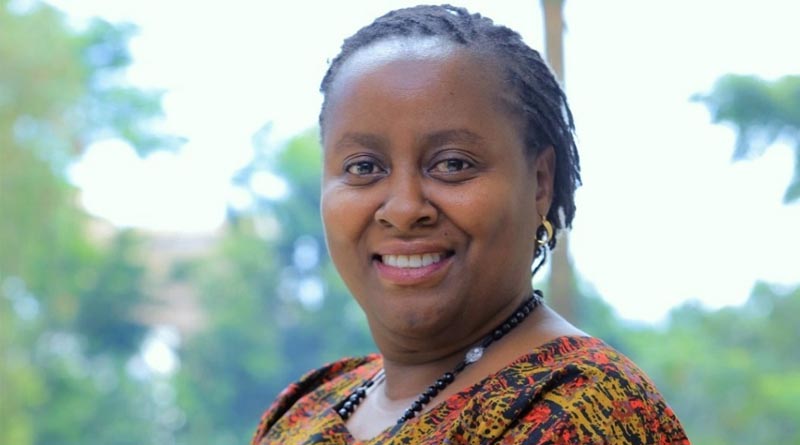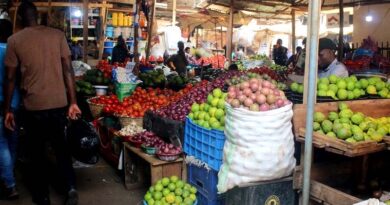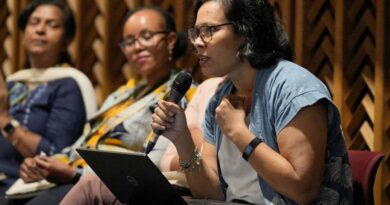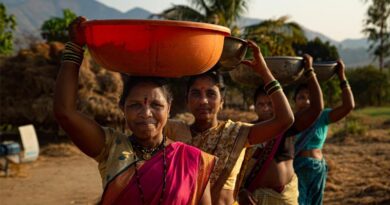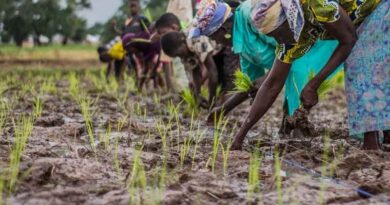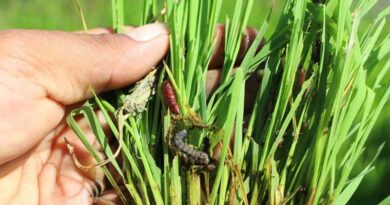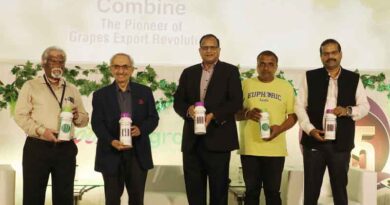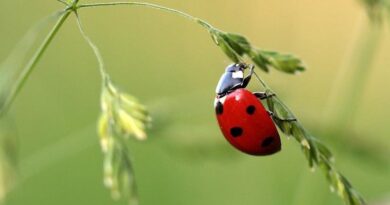CABI scientist joins panel discussion focused on how to invest in agricultural solutions that work for women
09 March 2024, Africa: Dr Monica Kansiime, CABI’s Deputy Director, Development and Outreach, Africa today (Friday 8 March) joined a panel of experts to discuss how to invest in agricultural solutions that work for women as part of a forum to celebrate International Women’s Day (IWD) 2024.
In line with the IWD theme of “Invest in Women: Accelerate Progress,” the African Women in Agricultural Research and Development (AWARD) convened the forum together with the CGIAR GENDER Impact Platform and CIFOR-ICRAF to ignite conversations on investments in women.
Dr Kansiime, who in November 2022 was awarded a Gender Responsive Agriculture Systems Policy (GRASP) Fellowship aimed at improving policy process in agri-food systems, took part in the panel discussion to foster equitable agri-food systems while calling for better targeting of such investments for maximum impact in transforming agri-food systems.
A keynote address was given by Janine Cocker, Head of Cooperation at Global Affairs Canada, before the panel discussion took place with aims such as increasing the visibility of women’s contribution in agrifood systems, creating an enabling environment, and addressing gender gaps in agriculture and drawing attention to the strategies and policies that have worked to close the gender gaps in agriculture.
Those who took part in the panel included Dr Abdou Tenkouano, Director General, International Centre of Insect Physiology and Ecology (icipe), Prof Appolinaire Djikeng, Director General, International Livestock Research Institute and CGIAR Senior Director of Livestock-Based Systems, and Dr Éliane Ubalijoro, Chief Executive Officer of the Center for International Forestry Research and World Agroforestry (CIFOR-ICRAF) and Director General of ICRAF.
Agricultural solutions that work for women
The discussions focused on how to invest in agricultural solutions that work for women and the role of institutions in improving the numbers and experiences of women in agrifood systems leadership.
One of CABI’s goals in its Medium-Term Strategy 2023-2025 is to reduce inequality through better opportunities for women and youth. Dr Kansiime, as one of the leaders of CABI’s programming and a proud AWARD Policy Fellow, was asked about what she identifies as the role of policies in shifting the needle toward this goal.
She responded by stating that policies address gender disparities and enable equitable access to resources such as education, healthcare, finance, agricultural inputs, and agricultural advisory services.
“Gender-responsive policies acknowledge and address the specific needs and challenges faced by women. This can include measures such as promoting women’s land rights or creating new income opportunities for women in agricultural value chains, shifting the social norms underpinning inequalities in access to and uptake of agricultural services,” she said.
Dr Kansiime was also asked to reflect on what the IWD theme of “Invest in Women: Accelerate Progress” means and what progress looks like to her.
She said, “Progress means women having equal opportunities to participate and succeed in the economy. This includes access to education, training, and employment, as well as the ability to start and grow businesses.
“Progress entails increasing the representation of women in leadership positions across all sectors, including politics, business, academia, research, and civil society.
“It also means achieving gender equality in all aspects of life, challenging discriminatory norms and practices, promoting gender-responsive policies and legislation, and fostering a culture of respect and inclusivity.”
African women to lead policy changes
AWARD bestowed the GRASP Fellowship honour upon Dr Kansiime as part of the first cohort of 50 African mid-career women who will now embark on a two-year career development programme.
The GRASP Fellowship, features policy practitioners from Ghana, Kenya, Malawi, Nigeria, Uganda, and Zambia, and will help grow the pool of confident and capable African women to lead gender-responsive policy changes that can improve the livelihoods of millions of African smallholder farmers and increase food security.
Also Read: Coromandel’s Gromor Drive Crosses 16,000+ acres of Drone-led Spraying
(For Latest Agriculture News & Updates, follow Krishak Jagat on Google News)

